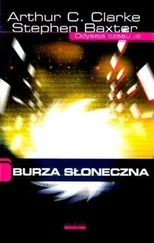“Why are we here?” I finally said. Mr. S. had stopped making the noise by this point. He looked exhausted. His eyes fluttered and I thought he was going to fall asleep in his chair. Steven and the woman were still standing next to each other, arms down, like they didn’t know what they were supposed to do with them.
“We’re protesting the war,” Steven said.
“No, no,” I said. “Why are we standing right here, in this spot?”
“We’re waiting for someone to come out,” Steven said.
“Does anyone ever come out here?”
Steven looked at the woman, who looked at the ground and shook her head. “No,” Steven said. “People only come out the authorized personnel gate.”
“Why aren’t we over there?”
“Because we’re not authorized to stand there,” Steven said. “If we stand and protest there, we get arrested. If we stand anywhere else and protest, we get arrested. This is the only place we’re allowed to protest.”
I thought about that for a moment. Everyone seemed to. Then we heard a car coming toward us. Steven unholstered his megaphone, and the woman raised her sign. I raised mine, too. I handed the megaphone to Mr. S. and he seemed to wake up a little. He raised himself up in his chair and put the megaphone to his lips. But then the car came around the corner, and we could see it wasn’t an army vehicle or anything like that. It wasn’t anything we could protest against. It was Mother’s car. I could see that from far enough away that it gave me time to duck down behind Mr. S.’s chair. A few seconds later, Mother whooshed past. She was driving fast, for Mother. After she’d gone by us, I stood up again. Everyone was still holding their signs. We all looked in the direction from which Mother had come, and then in the direction she’d gone. There were no other cars coming from either direction.
“Fuck,” Mr. S. said, and the woman started to cry.
WE DIDN’T TALK on the ride back to Watertown. I knew Mr. S. had brought me to Fort Drum to teach me a lesson, but I didn’t know what the lesson was supposed to have been and I wasn’t sure Mr. S. knew, either. He looked sleepy as he drove. I knew he wasn’t going to drive me to Alex Bay; I knew we’d be lucky to even make it back to Watertown. But we did. We passed through the Public Square, passed the Crystal, went up Washington, then went left on Flower, where we stopped halfway down the block.
“Last stop,” Mr. S. mumbled and rubbed his eyes. “Everybody out.”
I got out. I knew how to take care of Mr. S. this time. I got the chair, got him into it, pushed the button; I even rolled Mr. S. off the lift and onto the sidewalk and pushed him up the walk toward his house. At the end of the walk was a ramp that led over the steps and to the front door, which was black. The house was white. The siding was dirty. I could see J. in the window. She was frowning. I knew it was because of me. I would have felt bad about that if I hadn’t been thinking of something Mr. S. had said earlier, to the woman at Fort Drum, about him not being my dad: “No, I was actually in the war.”
“What did you mean by that?” I asked him.
“By what?”
“‘No, I was actually in the war,’” I said. “That’s what you told the woman at Fort Drum.”
Mr. S. didn’t say anything for a second or two. I slowed down. He still didn’t say anything. I stopped at the foot of the ramp. I was behind him, obviously. I stared down at his head. There was a swirl of hair and then a bald spot in the middle and then a big, red black scab in the middle of the bald spot.
“J. said she didn’t think your father was really in the war,” Mr. S. finally said. “She told me you didn’t even know what company he was in, what division, nothing. She thinks you’ve made the whole thing up. That’s what I meant.” He started drumming his fingers on the arms of his chair, and I knew he wanted me to push him up the ramp into the house.
“But J. saw him,” I said.
“She said the guy she saw might not even have been your father,” Mr. S. said.
“Who did she say it was, then?”
“She didn’t know,” Mr. S. said. “She said it could have been pretty much anyone.”
I could hear the front door creak open. I looked up. J. was standing in the doorway. She couldn’t have heard what we’d been talking about — we were too far away — but I wanted her to apologize for what she’d said about my dad. I was going to wait for her to apologize. I hated her so much, because I knew, no matter how long I waited, she wasn’t going to apologize.
“I know it was you who gave J. that scar,” I said. I said this loud enough for J. to hear. And she did. J. started walking down the ramp. She was wearing clogs, and they went bang, bang, bang on the aluminum. Mr. S. put his hands on the wheels of his chair and pushed, and the wheels rammed into my shins. I let go of the chair and took a step back. He spun the chair halfway around so he could look at me. “Fuck you, you little fucker,” he whispered. “It was her father .”
I didn’t get this at all. “That’s what I just said,” I said.
“Come on, Daddy,” J. said. She got between her dad and me and put her hands on the handles on the back of the chair. I was still so mad at her. I couldn’t stop thinking of how she’d said my dad and I looked a lot alike, even though she obviously hadn’t meant it.
“You and your dad look a lot alike,” I said.
“Go away,” J. said. She started rolling her dad away from me and up the ramp.
“No, really,” I said. “You two could be twins .” This was a lie. J. and her dad looked nothing like each other. And then I got it: Mr. S. didn’t want me to call him Mr. S. because he wasn’t Mr. S., because he wasn’t J.’s real father, which was why he didn’t have her last name. He hadn’t given her the scar, and he wasn’t her real father, even though she called him Daddy. I wondered what J. called her real father. I wondered where her real father was and whether he ever wanted to say he was sorry but didn’t because he knew it was too late.
J. charged up the ramp like the wheelchair and the man in it weighed nothing at all. I knew that wasn’t true; I knew they were heavy. J. must have been really strong. When J. got to the top, she pushed the chair right through the open door, then kicked the door shut behind her. I waited a long time for her to come to the window again. But she didn’t.
Doctor’s Notes (Entry 22, Part 1)
After my dreadful experience square dancing, I return to my office to reread these notes, and I see clearly — the cigarettes, the slovenliness, the language! — that I am turning into Exley. Exley! In horror, I set out to reverse the transformation, beginning with my face: I put a new blade on my razor, run the water, lather my face, wet the blade, and am about to address my face with it when the telephone rings. It is M.’s mother.
“I found M.’s diary,” she says, forgoing any of the conventional greetings.
I am so taken aback by this that I forget to interrogate M.’s mother about the reasons for her attending the funeral, the reasons for her deep, dark, terrible stare. I also forget to wash off my face and put down the razor. I am holding it with my left hand, the phone with my right. “Where?” I say.
“On the kitchen counter,” she says.
“Wait,” I say, looking at the clock on the wall. It’s late afternoon, and I know M.’s mother usually works significantly later than that. “Why aren’t you still at work?”
“I came home to get the mail,” she says. “I do that every afternoon and then go back to work.”
That seems a curious thing to say and do, but my mind is, for the moment, on M.’s diary. “How do you know it’s his diary?”
Читать дальше












